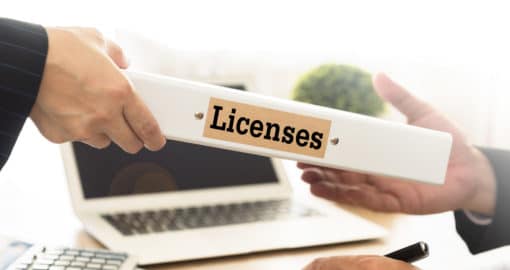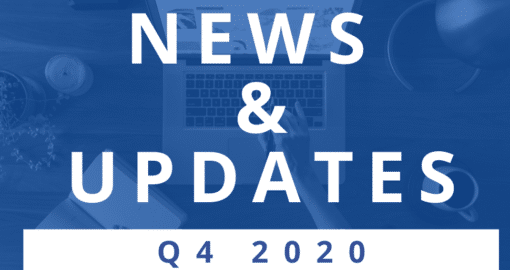Call Us Today (877) 943-0100
Understanding the Vitality of COIs for Contractors and Service Network
Blog | COI Management | July 31, 2024
Understanding the Vitality of COIs
The Certificate of Insurance (COI) is a documentation gem for organizations. It serves as a validation of the insurance coverage that various stakeholders possess. For any enterprise, the COI acts as a safety net. It ensures that necessary financial recourse is available in the event of an unforeseen circumstance—be it property damage, third-party injury, or any litigious scenario.
Certificates of Insurance (COIs) are essential documents for businesses working with contractors and service networks. They serve as proof of insurance coverage and are crucial for managing organizational risk. A COI acts as a safety net, ensuring that financial recourse is available in the event of unforeseen circumstances such as property damage, third-party injury, or other liabilities.
For contractors and service providers, understanding COIs goes beyond legal formalities; it’s a strategic component of risk management. A valid and comprehensive COI ensures that the contractor’s insurance covers potential risks associated with their work, protecting both the contractor and the hiring organization.
The Anatomy of the COI
A typical COI includes critical insurance details: the policyholder’s name, types of coverage (e.g., general liability, workers’ compensation), effective and expiration dates, coverage limits, and any special endorsements or exclusions. Key elements to look for include:
-
- Additional Insured Status: Adding the hiring organization as an ‘Additional Insured’ ensures that the organization’s interests are covered under the contractor’s policy.
- Primary Coverage Clauses: Specifies that the contractor’s insurance is primary over any other coverage the hiring organization may have.
- Waiver of Subrogation: Prevents the contractor’s insurer from seeking recovery from the hiring organization in case of a claim.
Proactive COI Management for Contractors
-
- Pre-Operational Requirement: Collect COIs before contractors begin work. This ensures that all parties are aware of the insurance coverage in place.
- Digital Management: Utilize digital systems for collecting and storing COIs. This facilitates easy access and management, especially when dealing with multiple contractors.
- Rigorous Review Process: Ensure that the COI details match the contract requirements, coverage limits are adequate, and all necessary endorsements are included.
- Expiration and Renewal Tracking: Keep track of policy expiration dates and require updated COIs before the existing ones expire. This prevents lapses in coverage.
- Regular Audits: Conduct periodic audits of COI records to ensure ongoing compliance with your organization’s insurance requirements.
Leveraging Expertise or In-House Management?
COI management requires a nuanced understanding of insurance policies and language. Mistakes in COI handling can expose the organization to significant risks. Businesses may choose to outsource COI management to specialists who are well-versed in the complexities of insurance verification. These experts can offer:
-
- Expertise in COI review: Skilled analysis of insurance documents to ensure compliance with requirements.
- Centralized document management: A streamlined system for managing and accessing COIs.
- Monitoring and automation: Automated processes for collecting, reviewing, and updating COIs, including follow-ups on policy expirations and cancellations.
Alternatively, maintaining an in-house team equipped to manage COIs requires ongoing training and expertise but can provide closer control over the process.
Cultivating a Risk-Ready Culture
Building a culture that prioritizes risk management is crucial. Encourage collaboration across departments to ensure COI processes are comprehensive and aligned with contractual requirements. Regular training and drills can help staff become proficient in handling COI-related tasks, ensuring they can respond promptly and effectively to potential issues.
Benchmarking and Continuous Improvement
COI best practices should evolve alongside industry standards. Regularly review and update your COI management processes, seeking feedback from stakeholders and benchmarking against best practices in the field. This continuous improvement approach helps maintain a robust risk management framework.
Consider Using a Trusted Partner with PlusOne Screening Solutions
Proper management of COIs is more than an administrative task; it is a critical component of risk management. Incorrect or missing information can increase organizational risk and lead to denied claims. A partner like PlusOne Screening Solutions can provide:
-
- Expertise in COI review and insurance language.
- Centralized COI management systems.
- Compliance verification against contractual requirements.
- Monitoring and automation for COI updates and expirations.
In summary, the COI is a key instrument in safeguarding against risks and ensuring accountability in contractor relationships. Mastering COI best practices not only mitigates risks but also demonstrates a commitment to maintaining a secure and compliant business environment.
To receive these updates directly in your email inbox, sign up for the newsletter. Questions or comments? We want to hear from you.Contractor Background Check Program: Best Practices You Should Be Following
Hiring an employee is not the same as engaging a contractor through...
Read More5 Trade License Tracking Benefits For Your Contractor Network
Licensing is one of those critical areas that can take a back...
Read MoreQuarterly Compliance Update, Q4 2020
Maintaining compliance throughout the pandemic, PBSA chairperson update, data entry for background...
Read More


